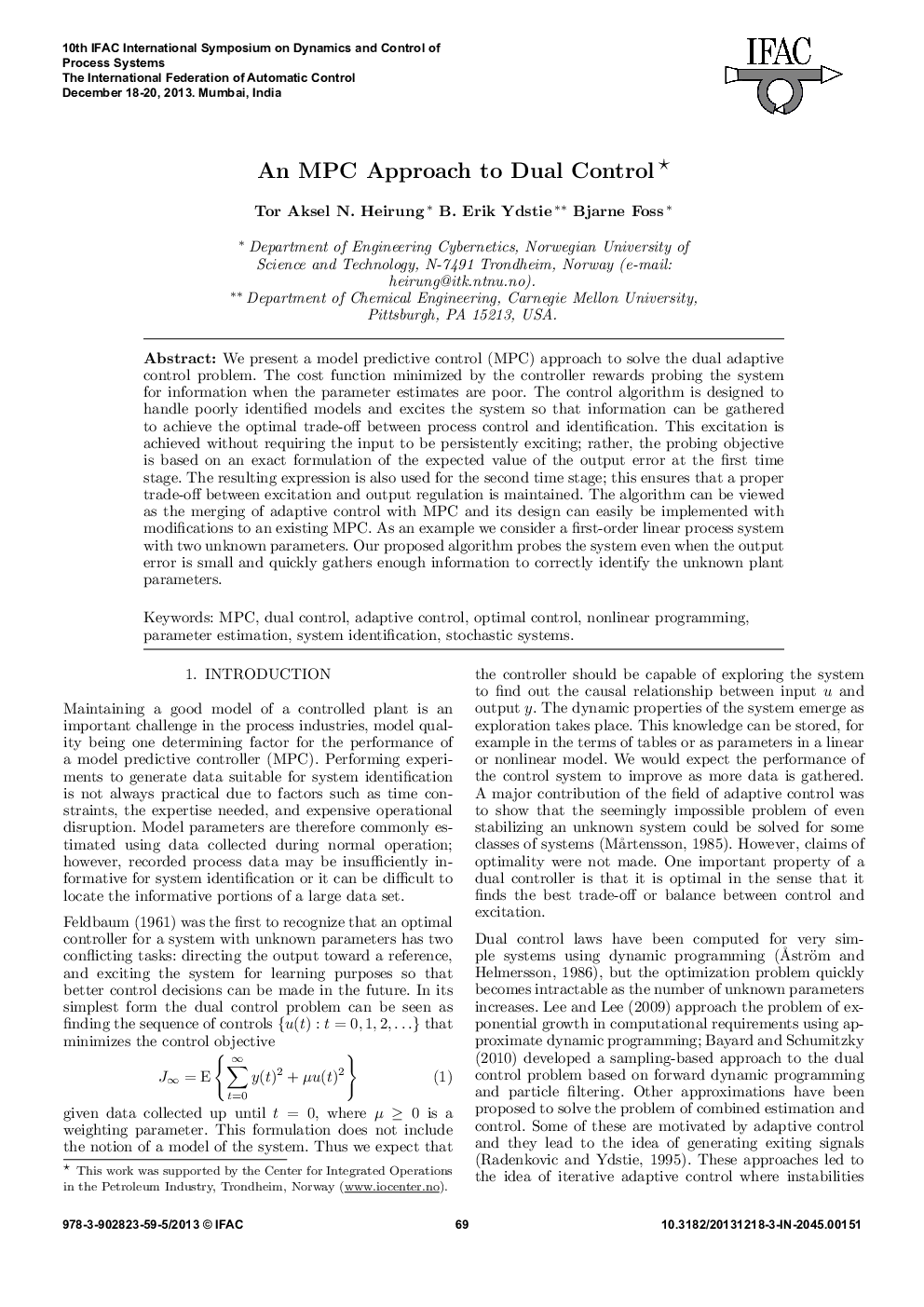| Article ID | Journal | Published Year | Pages | File Type |
|---|---|---|---|---|
| 713640 | IFAC Proceedings Volumes | 2013 | 6 Pages |
We present a model predictive control (MPC) approach to solve the dual adaptive control problem. The cost function minimized by the controller rewards probing the system for information when the parameter estimates are poor. The control algorithm is designed to handle poorly identified models and excites the system so that information can be gathered to achieve the optimal trade-off between process control and identification. This excitation is achieved without requiring the input to be persistently exciting; rather, the probing objective is based on an exact formulation of the expected value of the output error at the first time stage. The resulting expression is also used for the second time stage; this ensures that a proper trade-off between excitation and output regulation is maintained. The algorithm can be viewed as the merging of adaptive control with MPC and its design can easily be implemented with modifications to an existing MPC. As an example we consider a first-order linear process system with two unknown parameters. Our proposed algorithm probes the system even when the output error is small and quickly gathers enough information to correctly identify the unknown plant parameters.
